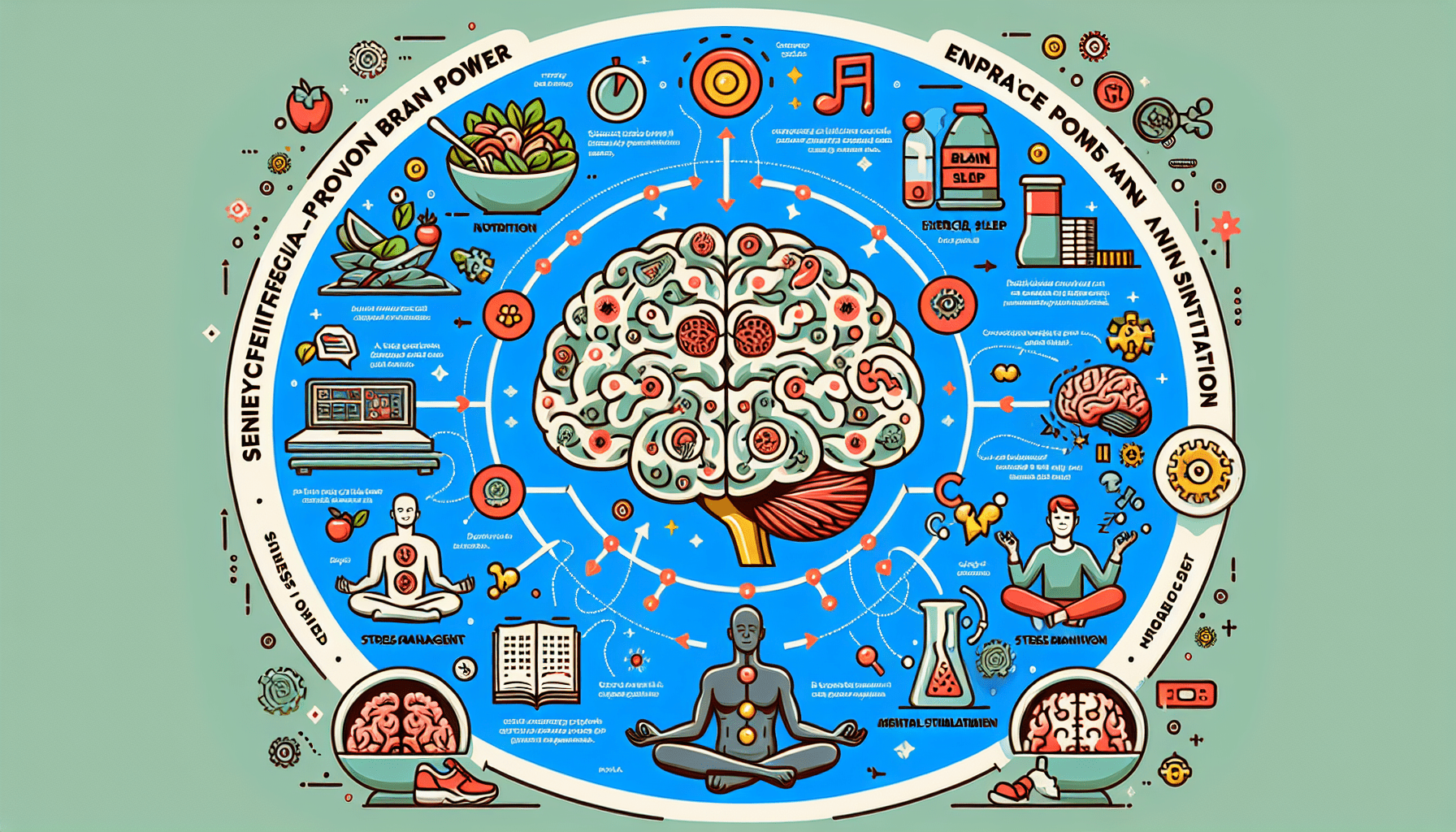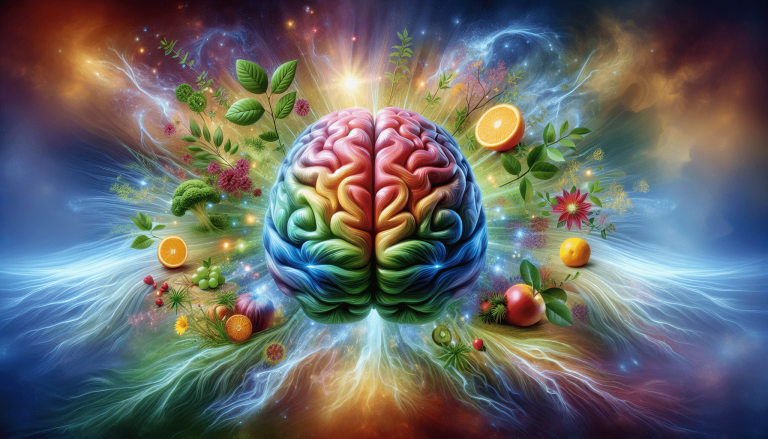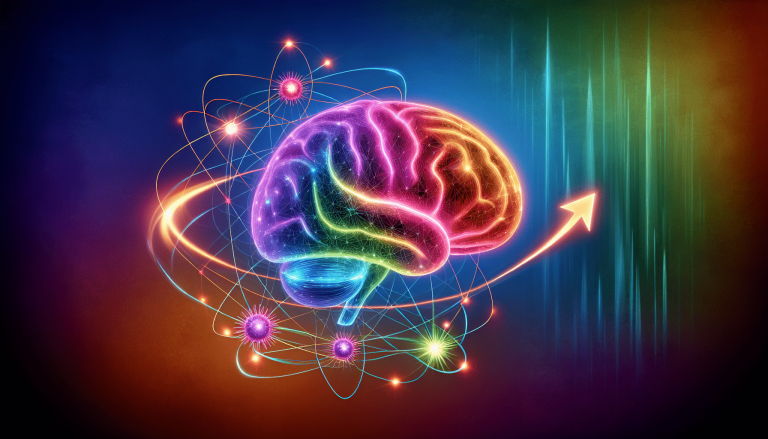What Helps Make Your Brain Stronger?
Have you ever wondered what you can do to boost your brainpower and enhance its strength? In this article, we explore the various factors that can help make your brain stronger. From engaging in regular exercise to maintaining a healthy diet and adopting a growth mindset, there are numerous strategies you can incorporate into your daily routine to optimize your brain‘s capabilities. Discover the powerful techniques to enhance your cognitive function and unlock your brain’s full potential.
Physical Exercise
Cardiovascular exercises
Engaging in cardiovascular exercises is an excellent way to enhance your brain’s overall strength and function. When you participate in activities such as running, cycling, or swimming, you increase your heart rate and improve blood flow throughout your body, including your brain. This improved blood flow supplies your brain with essential oxygen and nutrients, promoting proper cognitive function and overall brain health.
Strength training
In addition to cardiovascular exercises, incorporating strength training into your routine can also contribute to a stronger brain. Strength training involves activities like weightlifting, bodyweight exercises, or using resistance bands. These exercises help build muscle mass and increase bone density, which contributes to overall physical health. Interestingly, strength training has been found to have positive effects on the brain, improving cognitive function and memory.
Yoga and stretching
While cardiovascular exercises and strength training are vital, it’s also essential to include activities that focus on flexibility and relaxation. Yoga and stretching exercises can help promote a strong and healthy brain by reducing stress levels and improving overall mental well-being. The combination of gentle movements, deep breathing, and meditation in yoga helps calm the mind, reduce anxiety, and enhance focus and attention.
Mental Stimulation
Continuous learning
Making a habit of continuous learning throughout your life can significantly contribute to a stronger brain. Engaging in intellectually stimulating activities such as reading books, taking courses, attending lectures, or even learning a new language helps keep your brain active and constantly challenged. This active engagement with new information and ideas helps strengthen neural connections, improving memory, attention, and overall cognitive function.
Brain games and puzzles
Playing brain games and solving puzzles is a fun and effective way to keep your brain sharp and in good shape. Activities like crossword puzzles, Sudoku, chess, or memory games stimulate various areas of the brain, enhancing problem-solving skills, memory retention, and critical thinking abilities. By challenging and exercising your brain through these games, you can promote mental acuity and reduce the risk of cognitive decline.
Reading and writing
Engaging in the simple yet powerful act of reading and writing can have tremendous benefits for your brain’s strength and health. Reading allows your brain to immerse itself in new worlds, expanding your knowledge, vocabulary, and understanding of different perspectives. Writing, on the other hand, helps improve cognitive function, memory recall, and creativity. Whether it’s reading books, newspapers, or articles, or writing in a journal or blog, these activities serve as mental workouts that promote brain strength.
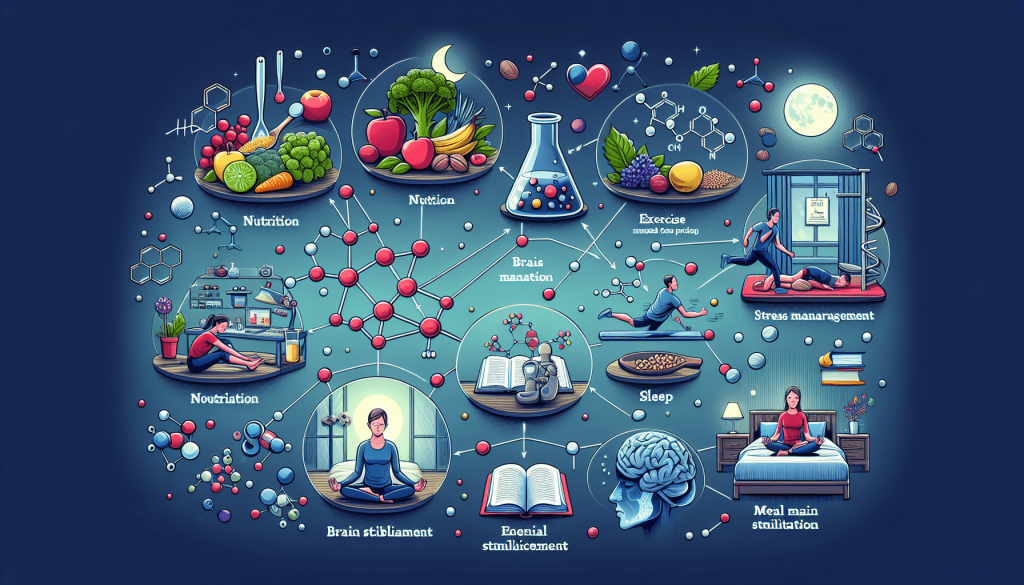
Healthy Diet
Omega-3 fatty acids
Incorporating foods rich in omega-3 fatty acids into your diet can be beneficial for both physical and cognitive health. Omega-3 fatty acids, found in fatty fish such as salmon, sardines, and mackerel, as well as in walnuts and flaxseeds, have been linked to improved brain function, memory, and overall mental well-being. These essential nutrients help build and maintain brain cell membranes and support the optimal functioning of neurotransmitters.
Antioxidant-rich foods
Including antioxidant-rich foods in your diet can aid in boosting your brain’s strength and resilience. Antioxidants help protect your brain cells from oxidative stress and inflammation, which can contribute to cognitive decline. Foods like berries (blueberries, strawberries), dark chocolate, nuts (especially walnuts), and colorful vegetables (like spinach, kale, and broccoli) are all excellent sources of antioxidants.
Balanced meals
Eating a balanced diet that provides a wide range of essential nutrients is crucial for maintaining a strong and healthy brain. Consuming a variety of whole grains, lean proteins (such as poultry, fish, and beans), fruits, vegetables, and healthy fats (such as olive oil and avocados) ensures that your brain receives the necessary nutrients for optimal function. Avoiding excessive intake of refined sugars and processed foods is also beneficial for overall brain health.
Adequate Sleep
Regulating sleep schedule
Getting enough quality sleep every night is a vital component of promoting a strong brain. Consistency in your sleep schedule helps regulate your circadian rhythm, the internal clock responsible for regulating sleep and wake cycles. Going to bed and waking up at consistent times every day trains your brain to anticipate and prepare for rest, ensuring you achieve the recommended amount of sleep for optimum brain function.
Creating a bedtime routine
Establishing a calming bedtime routine can greatly contribute to the quality of your sleep and the overall strength of your brain. Engaging in relaxing activities such as reading a book, taking a warm bath, or practicing meditation before bed helps signal to your brain that it’s time to unwind and prepare for rest. Avoiding stimulating activities like using electronic devices or consuming caffeine in the evening can also promote better sleep quality.
Creating a sleep-friendly environment
Creating an environment that is conducive to sleep is essential for maximizing brain strength. Ensure your bedroom is cool, dark, and quiet, as these factors promote a deep and uninterrupted sleep. Investing in a comfortable mattress, pillows, and breathable bedding can also play a significant role in improving sleep quality. Additionally, minimizing distractions, such as removing electronic devices or using earplugs if necessary, can further enhance your sleep environment.
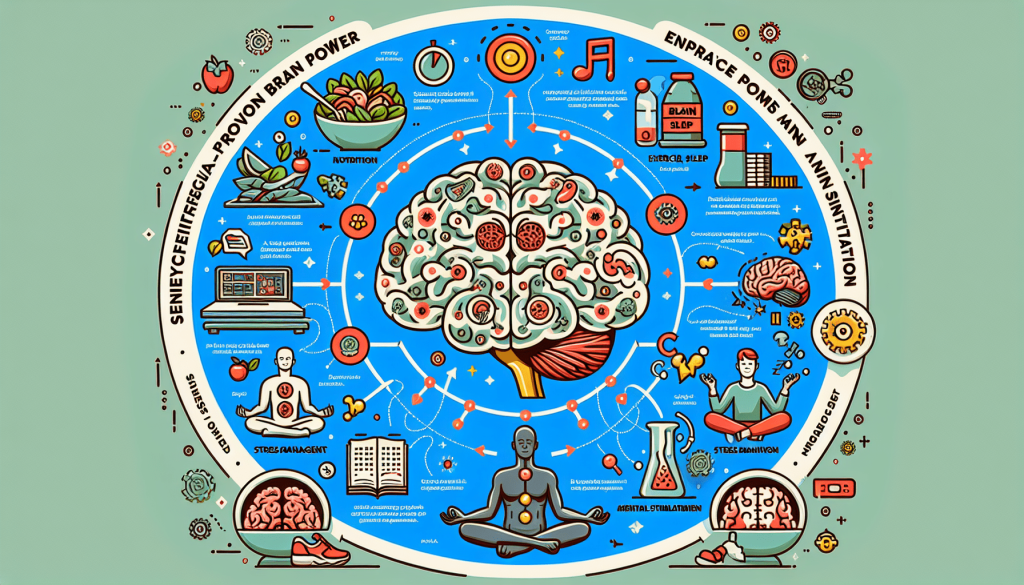
Stress Management
Mindfulness and meditation
Practicing mindfulness and meditation techniques can be highly beneficial for managing stress and promoting a strong brain. Mindfulness involves being fully present in the current moment, paying attention to your thoughts, feelings, and sensations without judgment. Regular mindfulness practice helps reduce stress, anxiety, and overwhelm, allowing your brain to function optimally. Engaging in meditation cultivates relaxation, improves focus, and supports emotional well-being.
Deep breathing exercises
Deep breathing exercises are simple yet effective techniques for managing stress and enhancing brain health. When you’re stressed or anxious, your breathing tends to become shallow and rapid. Taking slow, deep breaths activates the body’s relaxation response, reducing stress hormones and calming the mind. Practicing deep breathing exercises regularly can contribute to improved cognitive function, increased clarity, and better overall mental health.
Engaging in hobbies
Engaging in activities and hobbies that bring you joy and fulfillment can play a significant role in managing stress levels and promoting brain strength. Whether it’s playing a musical instrument, painting, gardening, or even cooking, spending time doing things you enjoy helps to reduce stress and promote relaxation. These activities stimulate the brain in different ways, fostering creativity, focus, and a sense of accomplishment.
Social Interactions
Maintaining meaningful relationships
Maintaining meaningful and fulfilling relationships with family, friends, and loved ones is crucial for both mental and brain health. Regular social interactions provide emotional support, reduce feelings of loneliness and isolation, and promote a sense of belonging. Engaging in meaningful conversations, sharing experiences, and being part of a supportive community contribute to a stronger brain by enhancing cognitive function and emotional well-being.
Joining clubs or groups
Joining clubs or groups that align with your interests and passions is an excellent way to expand your social network and strengthen your brain. Whether it’s a recreational sports team, a book club, or a community service organization, engaging with like-minded individuals helps foster connections, stimulate intellectual discussions, and promote a sense of purpose. These social interactions contribute to improved brain function, memory, and overall happiness.
Volunteering
Participating in volunteer activities not only benefits others but also has a positive impact on your brain’s strength and well-being. Volunteering allows you to contribute to a greater cause, instills a sense of purpose, and promotes feelings of fulfillment and gratitude. The act of helping others has been linked to increased happiness and reduced stress levels, which can significantly impact your brain’s overall health and cognitive abilities.
Staying Hydrated
Importance of water for brain function
Staying hydrated is essential for maintaining optimal brain function. The brain consists mostly of water, and dehydration can impair its ability to function efficiently. Drinking an adequate amount of water throughout the day ensures that your brain receives enough fluids to support its various functions, including cognition, concentration, and memory. Dehydration can lead to brain fog, headaches, and decreased mental performance, highlighting the importance of remaining properly hydrated.
Hydration tips and tricks
To ensure you stay hydrated, it’s helpful to incorporate some hydration tips and tricks into your daily routine. Carry a reusable water bottle with you wherever you go as a reminder to drink water regularly. Set alarms or use smartphone apps to remind yourself to take sips of water throughout the day. Infusing water with fruits, herbs, or vegetables can make it more enjoyable and encourage increased intake. Additionally, consuming hydrating foods like watermelon, cucumber, and celery can contribute to your overall hydration levels.
Other hydrating beverages
While water is the best beverage for overall hydration, other liquids can also contribute to your fluid intake. Drinks like herbal tea, unsweetened fruit juices, and low-sodium broth can provide hydration while offering some variety in taste. However, it’s important to be mindful of the sugar content in certain beverages, such as sodas or energy drinks, as excessive consumption may have negative impacts on brain health.
Avoiding Harmful Substances
Limiting alcohol consumption
Excessive alcohol consumption can have detrimental effects on brain health, impacting cognitive function, memory, and overall brain strength. It’s essential to practice moderation and limit alcohol intake to maintain a healthy and strong brain. The National Institute on Alcohol Abuse and Alcoholism recommends moderate alcohol consumption, which means up to one drink per day for women and up to two drinks per day for men.
Quitting smoking
Smoking and exposure to second-hand smoke have been linked to various health issues, including impaired brain function and an increased risk of cognitive decline. It is highly advisable to quit smoking to protect your brain’s health and promote overall well-being. Quitting smoking can lead to improved lung function, better circulation, and enhanced cognitive abilities.
Reducing drug use
The use of illicit drugs or the misuse of prescription medications can have severe consequences on your brain’s strength and overall health. Substance abuse can lead to addiction, mental health disorders, impaired cognitive function, and irreversible damage to brain structures. Seeking help, addressing any substance abuse issues, and reducing drug use is crucial for maintaining a strong and healthy brain.
Managing Chronic Conditions
Controlling blood pressure and cholesterol levels
Chronic conditions such as high blood pressure and high cholesterol can increase the risk of cardiovascular disease, which can adversely affect brain health. Monitoring and managing these conditions through lifestyle modifications, medication, and regular check-ups can help protect your brain from potential damage. Maintaining optimal blood pressure and cholesterol levels promotes healthy blood flow to the brain, reducing the risk of cognitive decline and promoting brain strength.
Diabetes management
Proper management of diabetes is essential for maintaining a strong and healthy brain. Diabetes can lead to long-term complications, including nerve damage, cognitive impairment, and an increased risk of developing Alzheimer’s disease. Following a balanced diet, staying physically active, monitoring blood sugar levels, and adhering to any prescribed medications or insulin treatments are crucial for effectively managing diabetes and protecting brain health.
Seeking treatment for mental health issues
Seeking treatment for any mental health issues you may be experiencing is essential for promoting overall brain strength and well-being. Conditions such as depression, anxiety, or chronic stress can negatively impact brain function, memory, and cognitive abilities. It’s important to reach out to a healthcare professional who can provide appropriate support and treatment options, which may include therapy, medication, or a combination of both.
Brain-Boosting Supplements
Omega-3 fatty acid supplements
In addition to incorporating omega-3-rich foods into your diet, omega-3 fatty acid supplements can also be beneficial for brain health. These supplements provide high concentrations of essential fatty acids, which support brain function, reduce inflammation, and promote overall cognitive well-being. It’s crucial to consult a healthcare professional before adding any supplements to your routine to ensure they are safe and appropriate for you.
Vitamin B12 supplements
Vitamin B12 is essential for brain health and overall cognitive function. Deficiency in this vitamin has been linked to memory loss, fatigue, and impaired thinking abilities. If you have a vitamin B12 deficiency or follow a plant-based diet, supplementing with vitamin B12 can help support brain health. As with any supplements, it’s crucial to consult your healthcare professional before starting any vitamin B12 regimen.
Ginkgo biloba supplements
Ginkgo biloba supplements have been used for centuries in traditional medicine to improve cognitive function and memory. These supplements contain compounds that increase blood flow to the brain and have antioxidant properties, potentially protecting brain cells from damage. While some studies suggest potential benefits, more research is needed to determine the effectiveness of ginkgo biloba supplements. As always, consult with your healthcare professional before starting any new supplement regimen.
In conclusion, there are various strategies and practices that can help strengthen your brain and promote overall brain health. Engaging in regular physical exercise, embracing mental stimulation, maintaining a healthy diet, prioritizing adequate sleep, managing stress effectively, nurturing social connections, staying hydrated, avoiding harmful substances, managing chronic conditions, and considering brain-boosting supplements are all important aspects of a comprehensive approach to strengthen your brain. By incorporating these practices into your daily life, you can enhance cognitive function, improve memory, and experience greater overall well-being. Remember, a strong brain is the foundation for a fulfilling life.
Additional Resources

This could break the brain function improvement industry in half… You may be skyrocketing your risk of dementia…and that’s why you need to know how easily you can reverse your brain function.
This amazing breakthrough is designed to repair mental acuity and give anyone who uses it the best mental alertness with improved memory and focus in no time.

